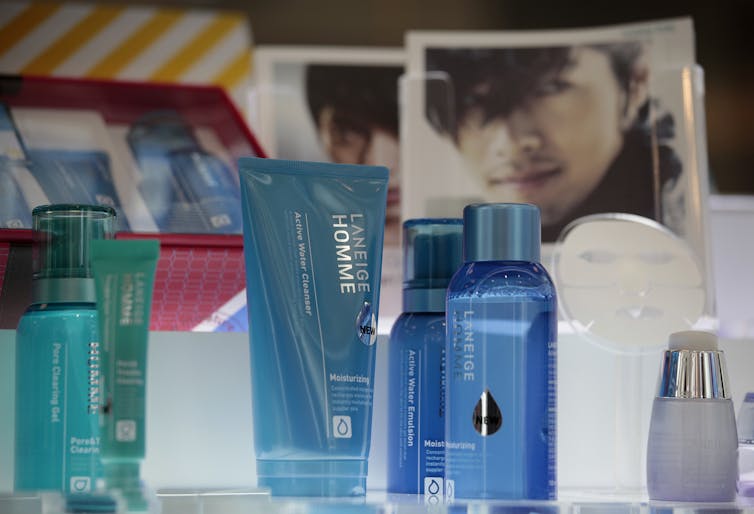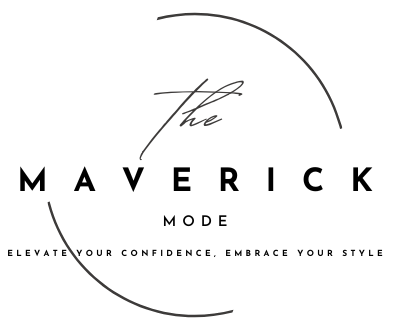Jose, 19, is a student in Puerto Princesa City, Philippines.
On a traditional school day, when he wakes up, he showers and scrubs his body with soap produced from papaya (), a fruit said to have skin-lightening properties. He then applies a brightening face lotion and finally, before he goes to high school, he applies SPF 30 sunscreen, also with brightening properties, to his face and arms.
Jose was one among many young people I met as a part of my ethnographic work Chemical youth projecta research program that aimed to document and understand the assorted chemicals that young people use of their on a regular basis lives, from cosmetics to cigarettes.
Skin whitening in women has long been commonplace within the Philippines and in other parts of Asia and the world, but while working on this project I noticed that young men also use a plethora of whitening products. And that these products have spread to varied shops, from malls to small or neighborhood stores.
But this development cannot only be observed within the Philippines. A Study 2015 found that the prevalence of skin lightening product use amongst male university students in 26 low- and middle-income countries was 16.7%. The number was higher in lots of Asian countries: 17.4% in India, 25.4% within the Philippines and 69.5% in Thailand.
The men’s cosmetics industry was situated within the Asia-Pacific region alone valued at $2.1 billion in 2016. Brighteners are more likely to account for a significant slice of this number; A Study 2010 reported that 61% of all cosmetics in India had a whitening effect.
Views of Whiteness
How can we understand this phenomenon? To begin with, it can be crucial to notice that in lots of parts of Asia there was a preference for white skin since precedent days, including amongst men.
In Heian Japan (794 to 1185 AD) and Ming China (1368–1644), good-looking men were described white or pale skin. In an undated Filipino epicthe hero covers his face with a shield in order that the sun’s rays “don’t spoil his beautiful appearance.”
Researchers have suggested that light skin was an indication of sophistication distinction in lots of societies. In her 2012 book Living Colorexplains the American anthropologist Nina Jablonski:
Untanned skin was an emblem of the privileged class that was spared from working outdoors… Dark-skinned people were rejected because they were a part of the working class that worked within the sun.
Others have suggested that the association of whiteness with purity became conflated with the concept white skin signified spiritual and physical superiority.
The colonial encounter arguably gave white skin a unique meaning, making it an indication of racial and not only class distinction. Filipinos, for instance, were generally considered by Americans as their “little brown brothers“, meaning an unequal brotherhood based on size and skin color.
Bazuki Muhammad/Reuters
Nevertheless, some scholars have also identified that many Asians don’t necessarily aspire to be “Caucasian white” but to be “cosmopolitan white“that transcends race and means mobility across national borders.
How the creation of the “metrosexual“(urban men who enjoy interests traditionally related to women and gay men) the rise of male-specific whitening products may be explained by the demographic and social changes which have led to the view of the body as something Words by British sociologist Chris Shilling“a project to be worked on and realized as a part of a person’s self-identity.”
It may well even be attributed to this changing ideas of masculinity which are not incompatible with the usage of cosmetics or beauty products.
Promise with unintended effects
Today, cosmetics corporations construct on these premises with mass, high-profile promoting. In India, Bollywood superstar Sharukh Khan made headlines by recommending the skin lightening cream “Fair and Handsome” in 2008.
In South Korea K-pop superstars Promoting local brands like for instance The Face Shop and the Etude Houseand function ambassadors of the Korean male aesthetic: slim, youthful-looking and fair-skinned.
While it’s insightful to have a look at these historical and global trends, it is usually necessary to have a look at the person users themselves and the role that whitening products play of their lives.

Bobby Yip/Reuters
During my fieldwork, I met many young men who were motivated by perceived social and economic benefits: 20-year-old call center agent Edwin desired to be more attractive to ladies.
Jose, for his part, desired to be a flight attendant at some point. He told me, “When you’re light-skinned, you stand out and that offers you a bonus.”
Their assumptions find empirical support in studies that suggest men have lighter skin are more more likely to recuperate paying jobs. In environments where young people only have their very own Body as “capital”The resort to modifications is comprehensible.
But from a public health perspective, the proliferation of bleaching products raises questions on effectiveness and safety, particularly in Asian countries without strict regulation.
Despite all of the promised effects, they really exist There is no such thing as a evidence that many products actually work, and lots of them have potentially serious unintended effects. Mercury, for instance, is a known poison, but that is it still present in skin whitening products in Indiaeven when it was an extended time ago banned in lots of other countries.
Is it right?
Beyond these health concerns, the moral debate continues. Will color, determined by genes, occupation and lifestyle, add one other level of inequality through the best way people view their skin – and that of others?
And like several other social issue, there have been differences of opinion. Across Asia there are more and more voices expressing the “Colorism“They should live with that.” Blogger Aswasthi Thomas, for instance: recently explained:
I’m Indian, I’m dark skinned and I do not care.
But what these campaigns sometimes forget is that the pursuit of differentiation through appearance might be as old as humanity itself. And it’s unlikely to go away, especially if it’s useful to people in on a regular basis life.
Nevertheless, as the will for dermatological perfection becomes more and more commodified and the skin is exposed to a wide range of chemicals, the query of restraint and reflection is definitely appropriate.
As more men and women embrace the concept “beautiful looks beautiful,” we want a deeper conversation in regards to the motivations underlying the skin lightening phenomenon and the meaning of (un)light skin.








